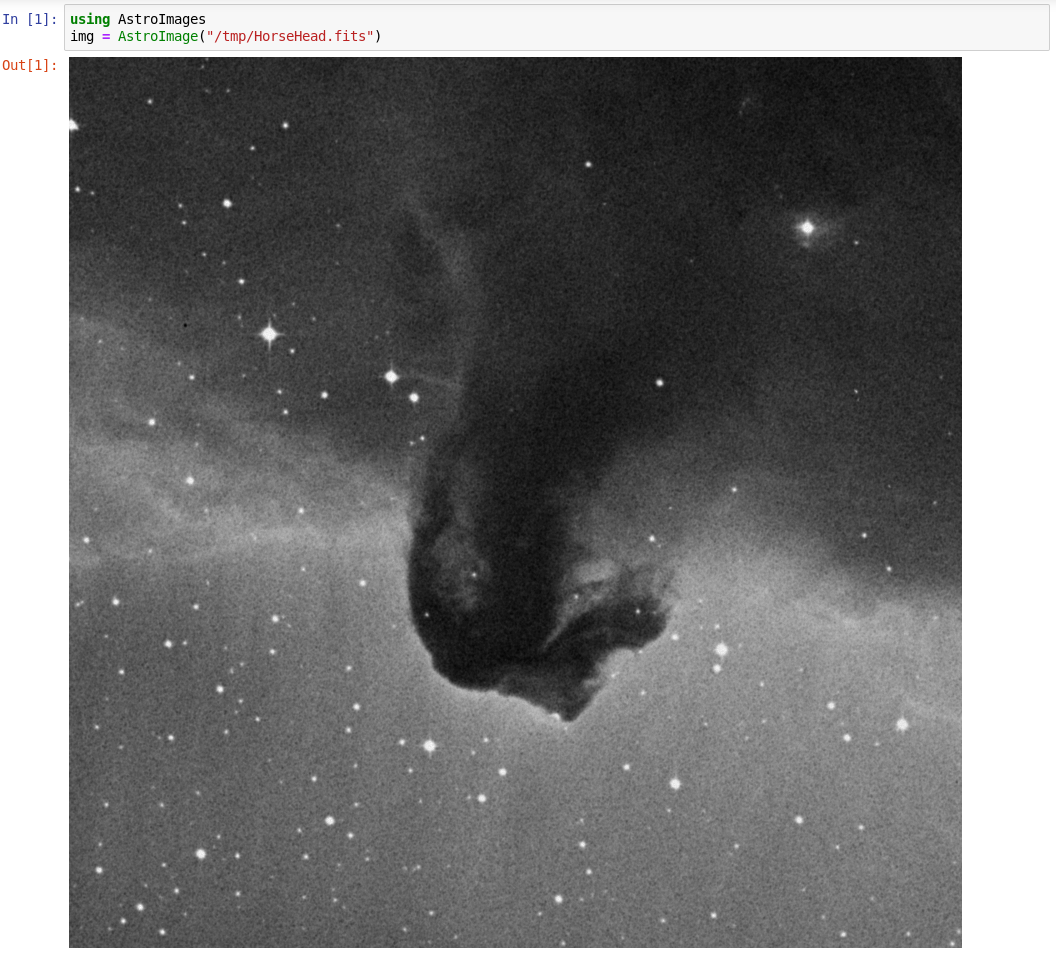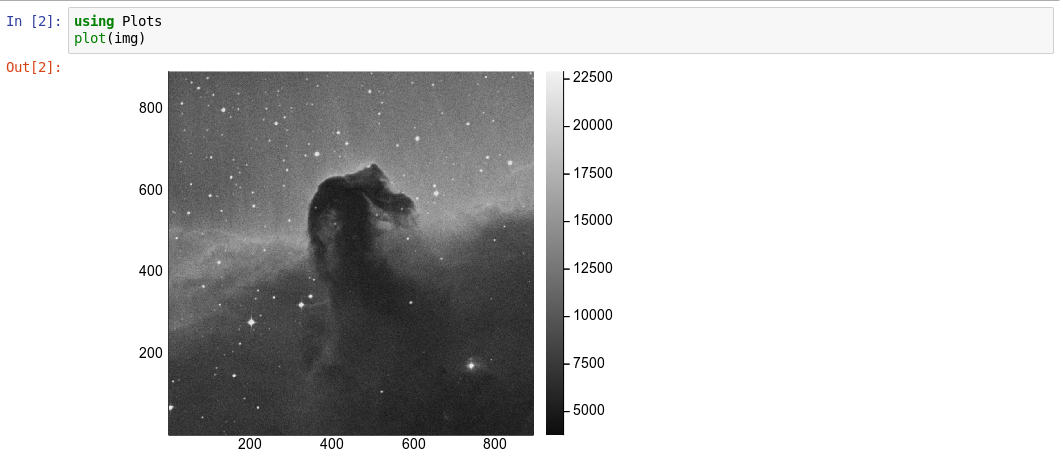In the last days I worked on a very little
package: AstroImages.jl.
Written in the Julia programming language and part of
the JuliaAstro organization, this package
provides simple tools to visualize astronomical images saved
in FITS files.
AstroImages.jl is meant as an interface to popular Julia packages
like Images.jl
and Plots.jl, and
uses FITSIO.jl to read FITS files.
Currently the package supports only single-frame images, in gray scale.
AstroImages.jl is licensed under the MIT “Expat” License.
Installation
The package is available for Julia 0.6 but not yet registered, thus if you would like to try it out use the following command in the Julia REPL:
julia> Pkg.clone("https://github.com/JuliaAstro/AstroImages.jl")
Usage
After installing the package, you can start using it with
julia> using AstroImages
For the time being the package provides only two functions:
load(extending theloadfunction fromFileIO.jl), to load an extension of a FITS fileAstroImage, a type constructor to create a new astronomical image object.
Reading extensions from FITS file
You can load and read the the first extension of a FITS file with load:
julia> load("file.fits")
1300×1200 Array{UInt16,2}:
[...]
The second, optional, argument of this load method is the number of the
extension to read. Read the third extension of the file with:
julia> load("file.fits", 3)
1300×1200 Array{UInt16,2}:
[...]
AstroImage type
The package provides a new type, AstroImage to integrate FITS images with
Julia packages for plotting and image processing. The AstroImage function has
the same syntax as load. This command:
julia> img = AstroImage("file.fits")
AstroImages.AstroImage{UInt16,ColorTypes.Gray}[...]
will read the first extension from the file.fits.
If you are working in a Jupyter notebook, an
AstroImage object is automatically rendered as a PNG image:
Plotting an AstroImage
An AstroImage object can be plotted with the Plots.jl package. Just use
julia> using Plots
julia> plot(img)
and the image will be displayed as a heatmap using your favorite backend.
Feedback welcome
If you test the package and would like to suggest improvements, feel free to file an issue on GitHub or, even better, send a pull request to add new features yourself!

